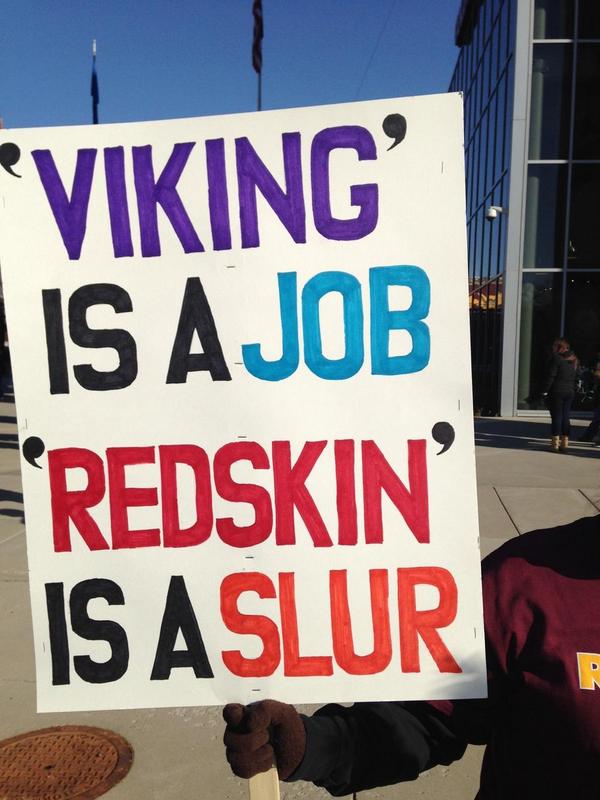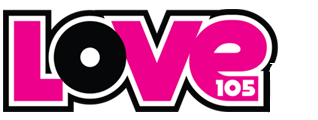Written By Sam Ekstrom
Walking up to TCF Bank Stadium Sunday morning, one may have thought Washington football fans had come out in droves to watch their team play the Vikings in a battle between 3-5 teams. In reality, these folks – many of them dressed in garbs representative of Native American culture – were there to protest the allegedly racist “Redskins” nickname that has been associated with the team since 1933.
As promised, the National Coalition Against Racism in Sports and Media organized a demonstration of thousands that met at the University of Minnesota’s Northrop Plaza, then marched around TCF Bank Stadium. There were two waves of protesters with one arriving at about 10 a.m. and another group marching down University Avenue at approximately 10:15 a.m.
Protesters carried signs, banged drums and chanted rhythmically. One common chant went, “Hey hey, ho ho, the racist name must go.”
With extra police on-hand, the protests were peaceful up to the time this story was published.
Several protesters spoke exclusively to 105 The Ticket about their motivation for attending Sunday’s demonstrations. Two women of Native American descent, who wished to only be identified by their first names, Sarah and Rachel, wore shirts with the team’s burgundy and gold color scheme that bore the word “Rename.”
“It’s a racial slur,” said Rachel. “You could name it something else. Why does it have to be a racial slur?”
Sarah, a St. Paul native, held a sign (seen below) that answers to those who argue that Minnesota’s “Vikings” nickname is stereotypical in its own way.

Both women considered themselves Vikings fans.
Running Horse Livingston, who described himself as a “hard-core Vikings fan,” is from Red Lake, Minn. He showed up with his wife and three young children to attend the protests but not the game.
“As much as I’d like to see the Vikings beat down the Washington football team, we’re not going,” said Livingston, who had to travel over four hours and 200 miles to get to Minneapolis.
Livingston offered some insightful commentary on how he views the name “Redskins” as harmful toward his culture and family.
“I think it’s a deeper issue than just the name,” Livingston told 105 The Ticket. “I think we use sports to protest because it obviously brings a lot more people out to hear the message. But there are a lot of things that happen in our communities, not just here in Minnesota, but all over the country that are affected by the negative imagery, the stereotypes that happen as a result of names like the Redskins.
“It really does affect the attitude of the general public, the mainstream public toward native people, which is why we have a lot of the stereotypes that we do,” Livingston continued. “For me, I really think it affects our youth and being proud to say who you are, being proud of being native. We have the highest rate of suicides in our communities. I’m not saying that’s a direct cause of [the name], but there is a pretty direct correlation between stereotypes, racism and the ability to perceive yourself as honorable, which Redskins is definitely not.”
Livingston’s daughters wore shirts that read “Replace.” The “Rename” shirts worn by Sarah and Rachel and the “Replace” shirts worn by the Livingston family were designed and ordered in bulk by the protest organizers and distributed for Sunday’s events.
Some protesters held signs that said, “Redskins fans are racists.” That created some trepidation for Washington fans in attendance, particularly Mark and Tara Roccatagliata, a husband and wife from Burlington, Ontario.
“The team’s name’s been there since 1932, like why now?” said Mark, a Redskins fan since age 7. The team name was actually adopted one year after his estimate of 1932.
“I don’t think it’s a racist issue,” said his wife. “There are lots of teams …”
Husband Mark cut her off.
“Braves, Blackhawks, it’s the same situation,” he said, insinuating that other professional sports teams bear names that could also be deemed derogatory.
“It’s not a negative connotation,” said Mrs. Roccatagliata, “it’s not intended to be a negative connotation. We’re fans. We’re here to see a sport. We’re here to see a game.”
Mark Roccatagliata doesn’t believe folks of Native American descent should be offended by the name.
“Be proud,” he said. “You’re being recognized in a way.”
The goal of Sunday’s protests was primarily to create awareness, according to those that interviewed for the story. But all of them hope the name gets changed sooner than later.
“Obviously, if Dan Snyder were smart,” said Livingston, “he’d change the name immediately.”
Sam Ekstrom is a staff writer for Cold Omaha at 105 The Ticket. He has previously served as a play-by-play broadcaster in Iowa and South Dakota and has covered Minnesota sports since 2012. Follow him on Twitter @SamEkstrom for further insights.






